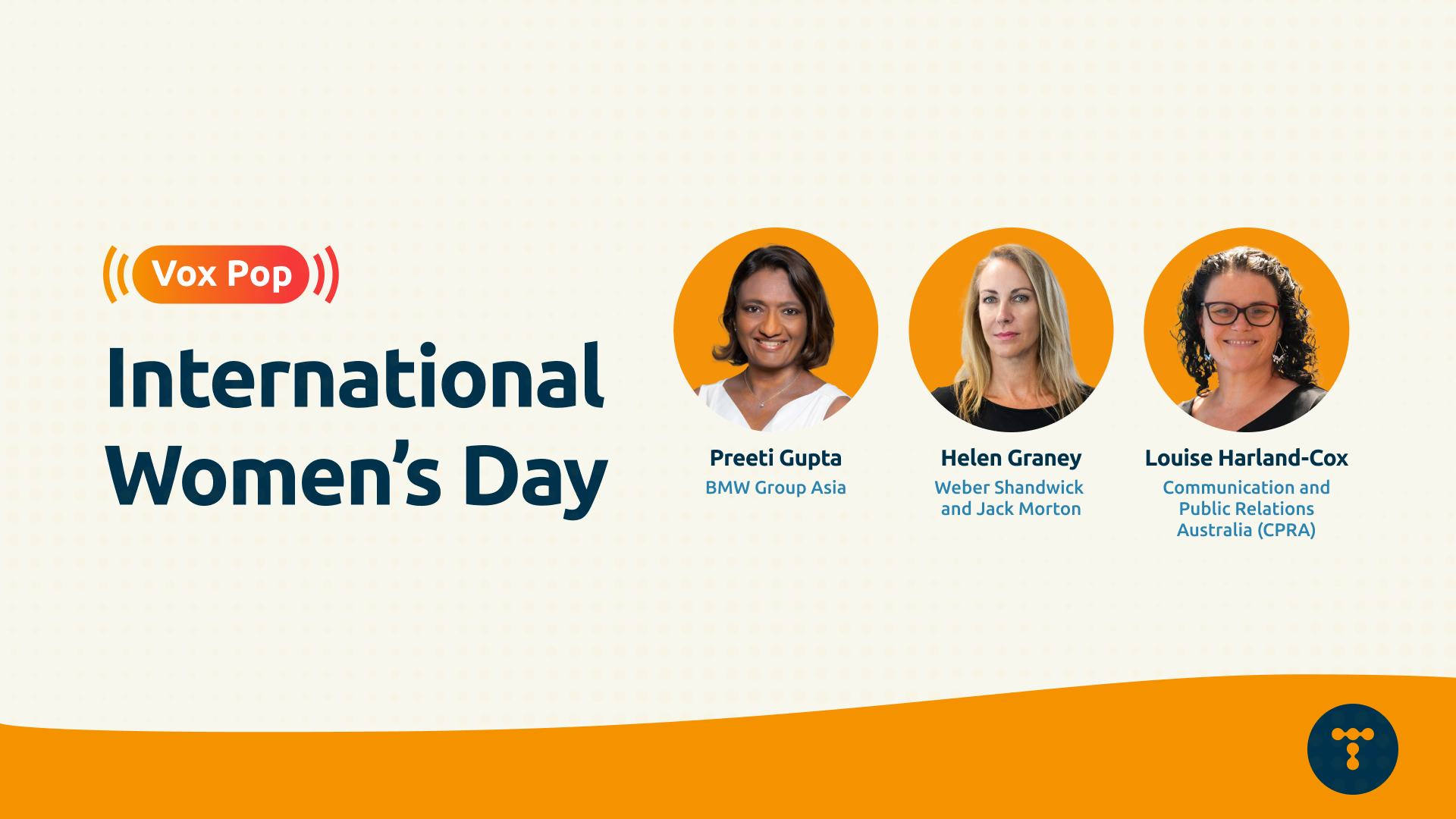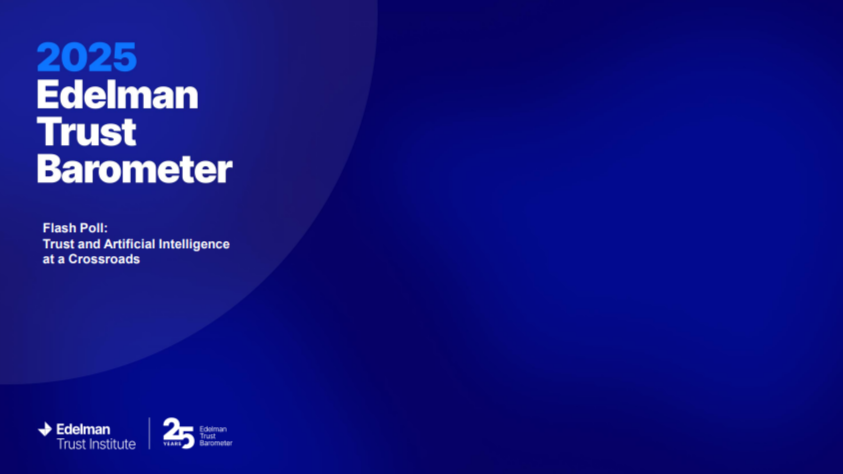On 8
th March, the world celebrates International Women's Day. In anticipation of the occasion, Telum Media spoke with three female communications professionals to gain insights into how the industry has evolved for women in PR and communications, as well as the steps being taken toward a more gender-equal and empowered workforce.
Helen Graney, Chair of GWPR Australia, CEO of Weber Shandwick and Jack Morton
Let’s be real, the PR industry has changed for women, but it's moving at a glacial pace, and that’s just not good enough. Women make up nearly two-thirds of the PR and comms workforce, yet somehow, we are still locked out of many leadership roles and the boardroom. Until we fix that, we're just slapping band-aids on a system with policies and mission statements.
One of the biggest, most under-discussed problems? Ageism. We're haemorrhaging experienced women from this industry right when we need them most. The 2024 GWPR Annual Index found that a fifth of women over 50 want out of PR. That's not just a talent drain - that's a crisis. If we don't reverse this trend, we're losing the very women who have the clout to drive real change.
Without visible, senior female leadership to actually enforce cultural change, policies are just corporate wallpaper.
Take workplace harassment. According to GWPR's 2024 Annual Index, a jaw-dropping 52 per cent of women in PR have experienced it. Even worse? Two-thirds of these incidents go unreported because women don't trust their companies to have their backs. 24 per cent fear outright retaliation. That’s not a minor HR issue - it's an industry-wide failure. And if we keep losing senior women, nothing changes.
Then there's the broader discrimination problem. Over half of female PR professionals have faced workplace bias, with age, gender, and maternity-related discrimination leading the charge. No surprise there, but here's the fix: we need more women in leadership, full stop. Not as token hires, not as diversity stats, but as decision-makers who drive lasting change. Because until we get that right, PR will be just another industry that talks a big game on equality but doesn't deliver where it counts.
Louise Harland-Cox, Chief Executive Officer of Communication and Public Relations Australia (CPRA)
While we're seeing positive shifts for women in the industry, the findings from our Global Women in PR (GWPR) special interest group highlight a persistent challenge that needs urgent attention: the impact of career breaks on women's progression in our industry.
The reality is that career breaks - whether for parenting, caring responsibilities, or other life events - are disproportionately affecting women's career trajectories. The GWPR Annual Index shows that taking time away from work continues to create significant barriers to advancement, particularly into senior leadership and board positions.
What's particularly concerning is how this contributes to the loss of senior female talent. These breaks often come at critical career junctures, just when women are positioned to step into more senior roles. Through GWPR's research, we're seeing that many women find it challenging to regain their career momentum after returning to work, with some ultimately leaving the industry altogether. This isn't just about individual careers - it's about losing the very leaders who could drive meaningful change in our industry.
The issue isn't simply about having return-to-work policies. While flexible working has become more common, it’s about ensuring these arrangements truly support career progression rather than quietly hindering it - many women report feeling they need to choose between flexibility and advancement. Through GWPR, we're exploring how our industry can better support women through career transitions. This isn't just about keeping talent - it's about recognising that diverse experiences make our industry stronger.
Our industry knows how to drive social change - we do it for our clients every day. Now it's time to apply that expertise to our own backyard.
Preeti Gupta, Corporate Affairs Director & Sustainability Lead, BMW Group Asia
Everyone might experience it differently, but I’ve been fortunate enough to be surrounded by many influential women in my career in comms, across the globe. They were women who continuously encouraged others with a mindset of "you got this", instilling confidence and offering support to everyone, regardless of gender.
They empower you to do things and learn the skills that you need to go forward.
Currently, I’m working in the automotive sector, which has traditionally been male-dominated, but that’s changing. The number of women in the field is increasing over time. For example, in our office here in Singapore, nearly 50 per cent of our staff are female. On top of that, nearly 50 per cent of our management at BMW Group Asia are female, all strong leaders. We are fortunate to have supportive male leadership that doesn't look at gender but rather the quality of work of each individual.
With regard to the communications industry, you must realise that it’s a 24/7 job. Whether you like it or not, the higher you go up, it's not about work-life balance but work-life integration, regardless of gender. In this situation, you really must know how to set boundaries and be creative in how you handle them.
Companies and leaders today should have the flexibility and openness to figure out how things work the best for them, and that work-life integration is the key. Mutual respect is also needed amongst everyone involved - for example, if there’s an emergency, please call my “bat” phone.
My advice to women in the workforce today: have faith in yourself, don’t be afraid to ask for what you want, and be confident.

Feature
Telum Vox Pop: International Women's Day 2025
by Telum Media
2 April 2025 4:00 PM
5 mins read
Telum Media creating connections
Get in touch to learn more
Previous story
Telum Vox Pop: Arts Communications in Hong Kong
Next story
Seven Media grabs five new wins
You might also enjoy
Moves
Aaron Tan has joined FleishmanHillard as Auto Practice Lead and Account Director, bringing experience across branding, communications, marketing and digital strategy.
Based in Singapore, he has accumulated more than 15 years of experience, having previously held senior roles at agencies including The Ate Group and W Communications.
31 December 2025 2:49 AM
1 min read
Research
In 2025, artificial intelligence sits at the centre of growing global divides. Across economies and generations, engagement with AI is revealing widening gaps in trust, understanding, and opportunity.
Chinese AI trust landscape
The 2025 Edelman Trust Barometer Flash Poll: Trust and Artificial Intelligence at a Crossroads reveals that respondents in Mainland China demonstrates high trust in AI compared to developed markets, including the US, UK, Brazil and Germany.
87 per cent of Chinese respondents say they trust AI, a figure that increased by 9 per cent between November 2023 and October 2025. This compares with trust levels of 32 per cent in the US, 36 per cent in the UK, and 39 per cent in Germany.
Strong embrace of AI adoption
High trust in AI among Chinese respondents also translates into their everyday use. 60 per cent of Chinese employees use AI weekly or more, while 49 per cent say they embrace its growing use, compared with just 18 per cent who reject it.
Acceptance is particularly strong in sectors shaping future growth. 43 per cent of financial services workers and 55 per cent of technology sector employees report embracing AI in their work, highlighting how quickly the technology is becoming embedded in professional life.
Optimism over fear of disruption
Unlike Western markets, where AI is often framed as a threat, Chinese respondents remain broadly optimistic. At least 67 per cent believe generative AI will help rather than harm society, including in areas such as climate change, work life, mental health, social cohesion, and economic equity.
Fear of economic displacement is notably low. Only 26 per cent worry that people like them will be left behind by AI, the lowest level among all surveyed markets. Even among lower-income respondents, concern rises to just 36 per cent.
A broad ecosystem of trust
Mainland China’s confidence in AI extends across all categories of AI communicators. 87 per cent trust 'people like themselves' to speak truthfully about AI, 88 per cent trust friends and family, and 85 per cent trust coworkers.
Trust in institutions and authority figures is similarly high, including 87 per cent for scientists and AI researchers, 83 per cent for CEOs, and 84 per cent for journalists and technology influencers.
More than 70 per cent of respondents are comfortable with their employer's use of AI - the highest rate amongst countries surveyed, while 60 per cent are comfortable with the media's AI usage.
Trust issues outweigh other barriers
Despite high overall trust, some barriers to AI adoption exist in Mainland China. Among infrequent users, 43 per cent cite trust concerns such as data protection, 28 per cent worry about how data will be protected, and 19 per cent are concerned about how their data will be used. Issues of motivation and access affect 40 per cent, while discomfort with technology is cited by just 15 per cent.
However these barriers are significantly lower than in Western markets, where 55 to 70 per cent of infrequent users identify trust as the main obstacle to AI adoption.
Ultimately, the Edelman Flash Poll highlights a simple point: trust shapes adoption. Mainland China’s high public confidence supports faster and broader use of AI, while lower trust in Western markets aligns with a more cautious pace. These differences underline how public attitudes influence the trajectory of technological change across regions.
30 December 2025 4:34 AM
3 mins read
Moves
Alexa Cheah has joined W Kuala Lumpur as Marketing Communications Manager. In her new role, she manages the hotel’s brand and communications efforts, including media relations, corporate communications and reputation, events, social media, as well as beverage and food marketing, working alongside the Director of Marketing Communications.
Her prior experience includes roles at Grand Hyatt Kuala Lumpur, followed by Hyatt Hotels in Malaysia, where she contributed to brand campaigns, hotel openings, and cross-property initiatives in the cluster marketing team.
29 December 2025 7:17 AM
1 min read


